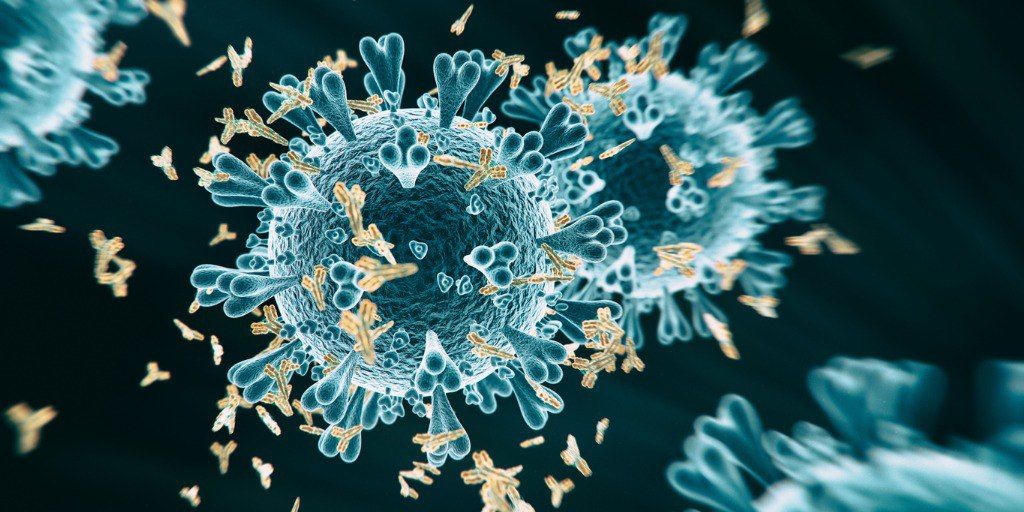May 6th, 2020 | 2 min. read

Antibody tests help determine whether or not your body has been exposed to COVID-19 already. And they are critical to the fight against the virus. But what are antibodies? How do they work? Watch the video below for a illustrated explanation or read on for a simple, brief recap.
When a viral particle, or anything that is a foreign object, gets into the body, it gets noticed by the immune system. White blood cells come to investigate the particle and engulfs the viral particle.
The white blood cells then take the viral particle back to a lymph node, which is a collection of specialized immune cells. The white blood cell then breaks apart the viral particle into pieces and presents the pieces (called antagens) to what are known as dendritic cells. The dendritic cells start the whole process in the body of creating antibodies.
Eventually, the body starts creating a type of antibody called an IgM antibody. IgM antibodies are the first class of antibodies. They are not as specific or powerful as later antibody classes, but they develop first and they develop rapidly. This is helpful in controlling infection as soon as possible.
Antibodies are shaped kind of like the letter "Y." The upper parts of the antibody are specific to viral particles and allow the antibody to attach itself directly to the viral particle (sort of like a magnet).
As antibodies attach themselves to the viral particle, the particle gets coated in antibodies. Ultimately, the antibodies send a signal to additional white blood cells to come and attack the virus. The antibodies are essentially telling the immune system what and when to attack a viral particle.
Over time, the body creates additional types of antibodies. Typically after you have been sick for a week or so, the second class of antibodies is created, known as IgG. These are more specific and more powerful than the IgM antibodies, and they further assist the body in destroying the virus.
When lab tests are done, the tests are looking for IgM and IgG antibodies. IgM antibodies indicate that you have recently contracted the virus and might still have an active infection. IgG antibodies indicate your body has mounted a good immune system to the virus and, in most cases, have nearly defeated it.
Sometimes, you can have both types of antibodies if you are in the midst of fighting the virus. IgM antibodies are the antibodies that stick around for months or years to provide ongoing protection in the event you are exposed again to the virus.
As a board-certified internist and concierge doctor in Richmond, VA, Dr. Steven Bishop is passionate about helping his patients improve their lives through better health. He helps healthy adults adjust their lifestyles as they age and helps patients with complex medical diseases manage and improve their health.
Topics: